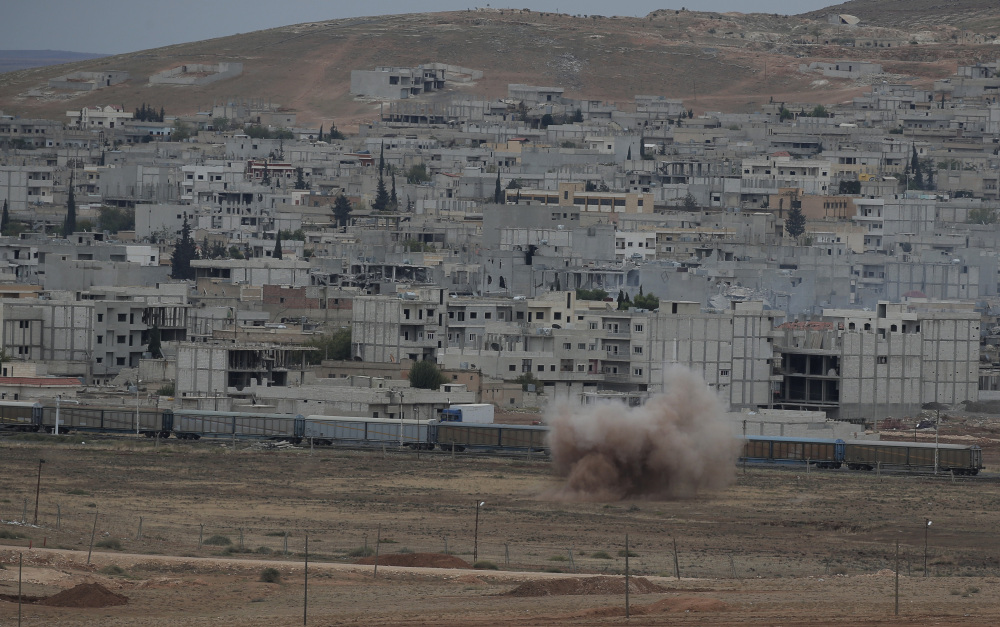MURSITPINAR, Turkey — Each day, Mohammed Jemmo ventures to a barren, wind-swept hilltop overlooking his embattled hometown where two of his sons and a daughter are fighting with the Kurdish militia resisting an offensive by Islamist extremists.
“I thought that if they must be martyred, then that would be God’s will,” Jemmo said as he peered south from Turkish territory toward the Syrian city of Kobani, plumes of smoke rising skyward and the rumble of an unseen fighter jet cutting through the thick overcast. “But now I’m more confident that they will survive. It seems this may be nearing an end.”
Less than two weeks ago, Turkish President Recep Tayyip Erdogan declared that Kobani “was about to fall” to Islamic State. Images beamed worldwide from satellite trucks on the Turkish side showed the militants’ signature black banner rising from buildings and atop Tel Shair, a hill overlooking the city.
But an abrupt reversal in fortunes, aided by U.S.-led airstrikes, appears to have blunted the prospect of a speedy conquest by the militants. No more black flags can been seen fluttering on the skyline of Kobani. The battle, freighted with symbolic if not strategic significance, has taken an unexpected turn since Turkey’s president predicted the city’s downfall.
Kurds on both sides of the border say the extremist advance has been halted in large part because of the airstrikes, now numbering at least 130 in the area, more than in any other part of Syria or Iraq since the air campaign against Islamic State kicked off in August. Warplanes have delivered punishing blows to the militants’ artillery, armored vehicles, communications gear and fighting units.
After a sluggish start, say Kurdish fighters and Kobani residents, the aerial assault has stopped Islamic State in its tracks and contributed to retreats along the southern and western flanks of the city.
Islamic State remains formidable to the east, controlling a strategic mesa. The current battlefield tableau, Kurdish leaders warn, is more akin to a stalemate than an impending victory for either side. While the situation is dynamic, the Kurds of Kobani are in a better position now than just a week or so ago.
“The situation is stable now,” said Ismat Sheik, a Kurdish political representative in Kobani, reached via cell phone.
“The (Kurdish) fighters have managed to stop Daesh from advancing, but the tide hasn’t turned in our favor,” he added, using the common Arabic acronym for Islamic State. “Kobani is still in danger.”
Copy the Story LinkSend questions/comments to the editors.



Success. Please wait for the page to reload. If the page does not reload within 5 seconds, please refresh the page.
Enter your email and password to access comments.
Hi, to comment on stories you must . This profile is in addition to your subscription and website login.
Already have a commenting profile? .
Invalid username/password.
Please check your email to confirm and complete your registration.
Only subscribers are eligible to post comments. Please subscribe or login first for digital access. Here’s why.
Use the form below to reset your password. When you've submitted your account email, we will send an email with a reset code.